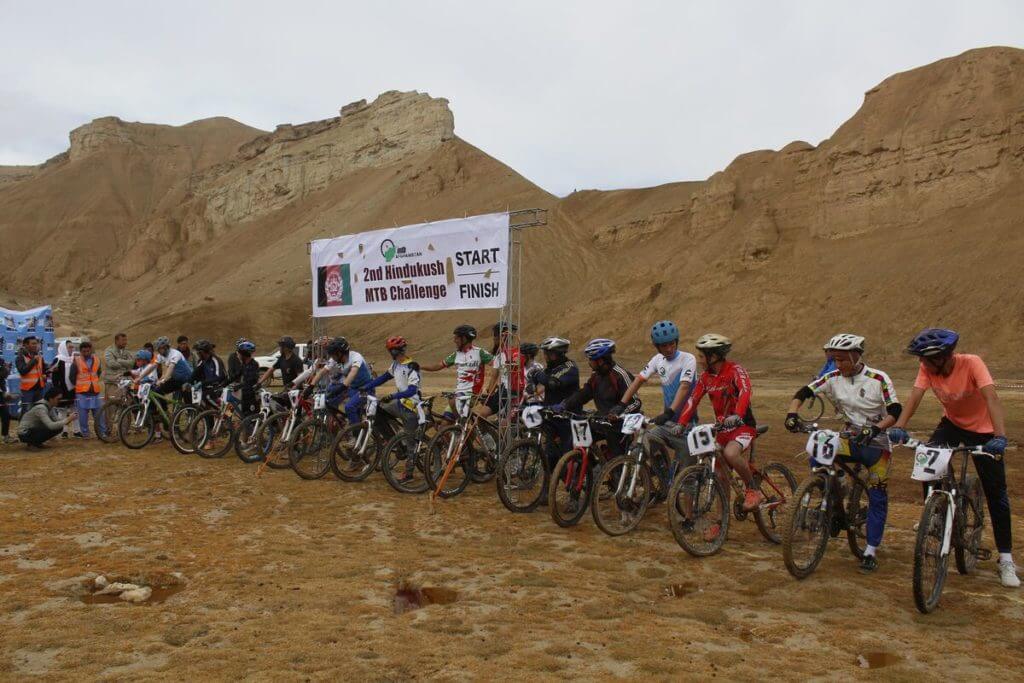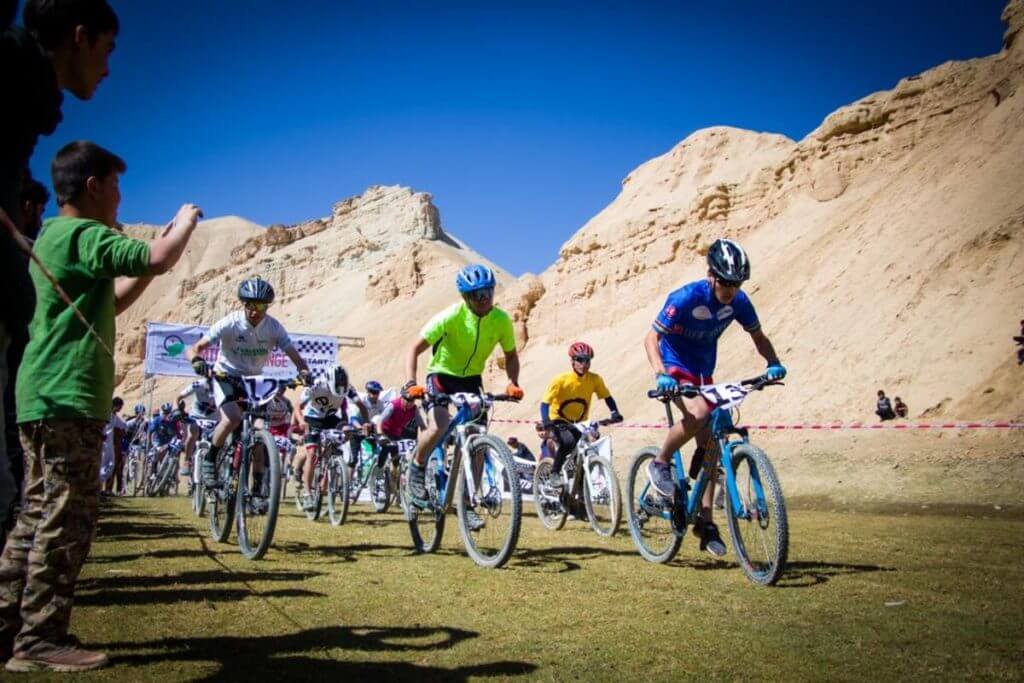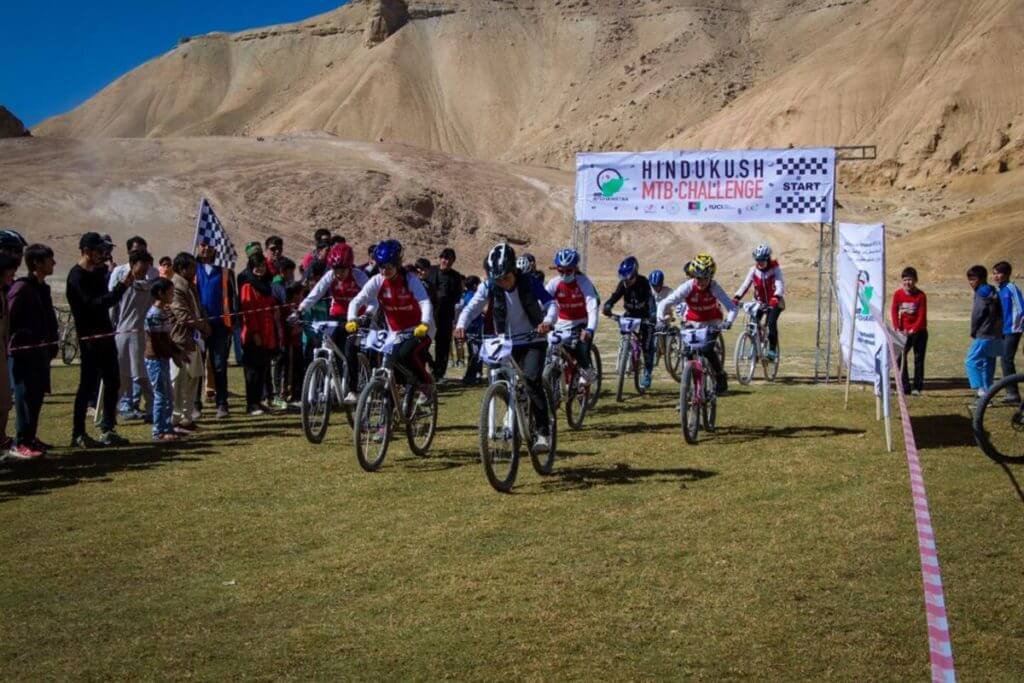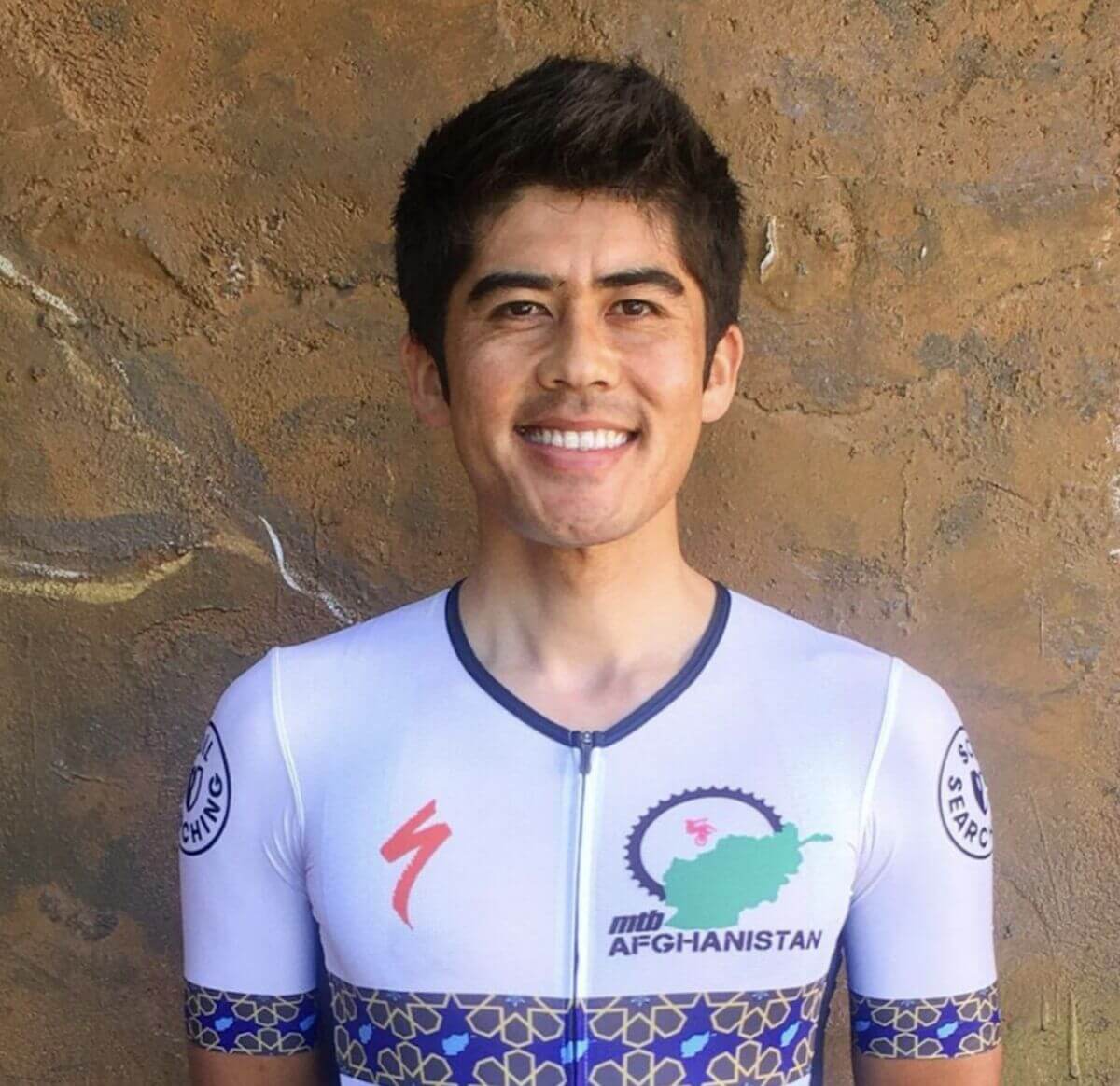Farid Noori sees a world of potential when he looks at a mountain bike. Born and raised in Afghanistan, he came to the United States as a teenager, and fell in love with the sport of mountain biking. A recent graduate of Middlebury College with a degree in economics, he’s the executive director of the non-profit Mountain Bike Afghanistan which he started in order to empower youth in his home country and connect them to the cycling community at large.
Hi Farid! Your entry to the sport of mountain biking hasn’t been what people in North America might call traditional. Tell us how you came to find cycling in general?
Cycling as a sport was an unknown concept to me because growing up in Afghanistan, I had never seen a bike race, or race bikes for that matter. You simply don’t see them anywhere. But biking is very common back home; people use it as a cheap alternative to public transportation. In 2014, chance took me to an Enduro mountain bike race in New Mexico where my host family’s son, Macky Franklin, and his girlfriend, Syd Schultz — both pro riders — were participating. I hadn’t seen anything like it before, and was blown away. “Really? You can come down a mountain like that on a bike?”, I remember thinking. Immediately after their race, I asked if I could give it a try. Coming down the mountain that day, on the fanciest bike I had ever seen, I had two feelings exactly: 1) I am having the best time of my life, and 2) if this is mountain biking, why is it here in New Mexico and not back home where the real mountains are (the Hindukush which are enormous!). I got hooked, and since then cycling has played the biggest role in my life.
All photos below are from the Hindukush Challenge, Afghanistan’s first mountain bike race that Farid helped coordinate from the other side of the world.

What does mountain biking represent to you?
Mountain Biking for me is a vehicle to explore vast and beautiful territories in Afghanistan that have remained unknown to us due to the ongoing conflicts. The dire situation back home has stripped us of a deep understanding about our country, and turned us into strangers in our own land. We inherit one of the most naturally stunning countries on earth, and yet few of us Afghans have experienced that beauty. The bike is a tool that allows us to go both far and high in these uncharted places. Seeing your place from above, from a mountain lookout, matters! The view from up there puts everything, including the conflicts, into perspective, and paints a fuller picture of our otherwise troubled country.
For me, mountain biking presents an opportunity to get our people out there to see our country in that new way. And in the process, for them to enjoy the land we have been so removed from in all these years. It is a long haul to find peace in a place where that word is increasingly becoming hard to imagine. The bike has given me peace, living away from home by an ocean and two continents. I feel the empowerment firsthand, and believe it can do the same for my peers in Afghanistan. Not to mention the inspiration and pride that will come from Afghanistan joining the ranks of other nations in international bike racing. We have the raw ingredients for success: a very mountainous country, and a large young population hungry for opportunities.
What is the state of cycling in Afghanistan?
Finding bikes remains a huge obstacle. There are zero distributors. Those who are passionate cyclists go at incredible lengths to acquire their bikes, often from secondhand markets in neighboring countries Iran or Pakistan. Security remains an obstacle to growth. Most cyclists, particularly women, only have one choice for a road to train on, doing the same stretch day in and out. Even then, they are taking huge risks. The federation implies that they have no funding, and has suffered a lack of professional cadres for the job. Most organized races are symbolic, often dedicated to a national calendar event, such as Independence Day, Earth Day, etc. In other words, very little is being done to motivate those who are passionate, and to spur growth. In this space, Mountain Bike Afghanistan operates to improve the situation.

You’re now pursuing an MBA at the University of Arkansas. We don’t think you’re headed straight to Wall Street afterwards; what do you hope to accomplish with this advanced degree?
My ideal life is “adventurer in the AM, and writer in the PM” (or vice versa depending on the forecasts). For four years until the pandemic hit, I was pursuing an Olympic dream in mountain biking with the goal of immersing myself in the sport to then share my knowledge with other, more promising, young Afghans. Now that I have put that chapter behind me, post my MBA degree, I plan to grow Mountain Bike Afghanistan, write professionally, and of course, do plenty of adventures on the bike. I am really excited!
Paint the pie-in-the-sky ideal view of what cycling looks like in Afghanistan in the future with the adoption of mountain biking in your home country?
- Afghanistan is a mountain biking mecca. People go there not only to ride some of the most spectacular mountainous landscapes, but also to immerse themselves in a culture that has been the subject of travelers’ curiosity for a long time: for its mysterious and rich traditions, amazing hospitality, raw ingenuity of its people, and humble lifestyles.
- Mountain biking and cycling in general is how people know Afghanistan. Not war. Cycling and Afghanistan is like two faces of a coin. Similar to Kenya in running. This means our athletes are leading the world, and we have a strong homegrown culture of mountain biking.
- Mountains bikes for commuting. Afghanistan is incredibly rural. 80% of the population live in the country, characterized by high mountains, and valleys. Students in these places walk anywhere from an hour to several hours just to get to school. We think in today’s world, they shouldn’t. Bikes come to the rescue!
We were already excited to bring some spices into our waffles with the introduction of the Chai Waffle. You were one of the first to taste test the waffle. As someone who’s grown up on authentic chai, how does our waffle stack up?
As someone who grew up on Chai, I would be opposed to anything Chai that doesn’t come in a cup. But when I first tried the UnTapped Chai Waffle, I liked it a lot from that first bite, because it has all of those authentic masala notes in it. It is now my favorite waffle ever, and a treat to carry a taste of home on my rides!

For more about Mountain Bike Afghanistan, visit this page.
To follow Farid and his adventures, visit his instagram page.
